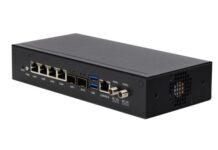It’s no exaggeration to state that the empowerment of MSMEs (Micro, Small, and Medium Enterprises) is in our national interest. They exist in millions, employ most of the country’s working population, and earn the highest foreign exchange. Digital empowerment of MSMEs can be a game-changer in making them globally competitive and resilient to business uncertainties. This massive exercise involves understanding their challenges, visualizing solutions, building ecosystems, creating awareness, and incentivizing entrepreneurs. India has already started doing it. To better understand this initiative, we must delve into the challenges MSMEs face and how digital empowerment can help overcome them.
One of the primary challenges MSMEs face is the fierce global competition. Competition standards have suddenly evolved, with technical sophistication and compliance becoming the new norms. SMEs that shy away from digitization, automation, IoT and smart manufacturing risk being left behind. This shift has led to the widespread adoption of information technology, transforming physical assets into digital ones and enforcing strict information security measures. Imagine all designs, drawings, cost sheets, customer data, formulas, IPR, business data, documents, communications, and transactions being digitized and exchanged electronically. However, this digital transformation comes with a significant catch: it attracts digital intruders and hackers.
As MSMEs increasingly depend on digital assets, transactions, and information, their vulnerability to cyber threats grows. Digital assets like designs, drawings, documents, accounts, emails, intellectual property, customer data, employee data, and business information are crucial for business continuity. The loss of these assets can disrupt operations, lead to competitive exploitation, or result in data breach liabilities. This scenario underscores the need for MSMEs to prioritize cybersecurity, data protection, and information security.
Emerging concepts like Security as a Service (SaaS) and Infrastructure as a Service (IaaS) offer promising solutions to mitigate cybersecurity risks. These services can enhance the digital empowerment of MSMEs by providing robust security measures tailored to their needs. The ability of MSMEs to maintain business continuity after a ransomware attack or disaster will determine their resilience and capacity to compete. Protecting data from leakage and theft is essential for their survival and success in the competitive global market.
Indian SMEs must seize the global opportunities presented to them. To maintain business continuity, avoid competitive exploitation, and comply with the highest standards of information security, they need to reshuffle their priorities and make cybersecurity their top focus. However, SMEs cannot achieve this transformation single-handedly. It requires a collaborative effort from the government, the IT industry, and the SMEs themselves.
The government can play a pivotal role by extending its subsidy schemes to include cybersecurity measures. Currently, schemes that entitle SMEs to subsidies for ISO Certification can be expanded to cover cybersecurity investments. The IT industry can contribute by developing SME-specific products that are simple, affordable, and effective in addressing cybersecurity challenges. SMEs, on their part, need to change their perspective toward IT, viewing it as an investment rather than an expense.
With a concerted effort from the government, the IT industry, and the determination of SMEs, significant progress can be made in enhancing cybersecurity for small businesses. The first step is for SMEs to change their mindset and prioritize cybersecurity. This shift in focus will enable them to protect their digital assets, maintain business continuity, and remain competitive in the global market.
In conclusion, the digital empowerment of MSMEs is crucial for their growth and sustainability. By addressing cybersecurity challenges through collaborative efforts, MSMEs can safeguard their digital assets, ensure business continuity, and capitalize on global opportunities. The path to digital empowerment involves understanding challenges, visualizing solutions, building ecosystems, and creating awareness. With the right support and mindset, MSMEs can thrive in the digital age and contribute significantly to the national economy.

















